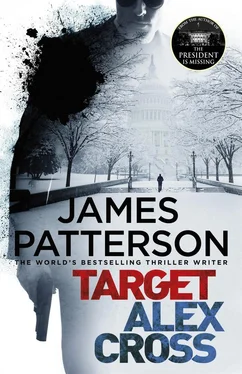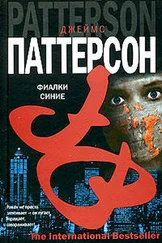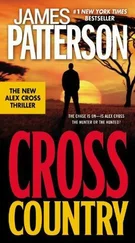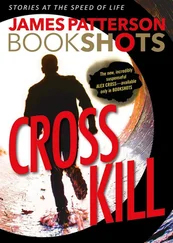Davis peered at Ned’s badge, listened to him say something, and looked disappointed. She picked up her clutch and slid off the barstool. She moved confidently to the coat check, retrieved a coat, and then spotted me.
“Sorry about that, Nina,” I said, walking up to her. “I’m here with Special Agent Mahoney. My other life. We just needed to talk to the doctor alone.”
Davis watched me a moment, trying to see if I was judging her, then said, “What’s he done?”
“You know him?”
“Sure,” she said. “Chad Winters. He’s an... old acquaintance.”
“Trustworthy?”
She hesitated. “I’d ask the medical board. See you tomorrow afternoon?”
I nodded.
When I reached Mahoney and Winters, the doctor was acting the defensive professional. “There is still such a thing as doctor-patient confidentiality,” he complained.
“We’re not asking about Kasimov’s medical history,” Ned said. “Just trying to corroborate his statements. He says he was sick early Tuesday morning and that you were there.”
“That’s true,” Dr. Winters said. “He was projectile vomiting. High fever. I had to give him a shot of trimethobenzamide so he could keep food down.”
“He said a combination of the flu and food poisoning?” I said.
The doctor nodded. “Simultaneous viral and bacterial infections. He’s over the bacterial thing, but that’s a nasty strain of flu he’s fighting. It’s been a killer across Africa and Asia and can go on for a full two weeks.”
Mahoney and I looked at each other. The Russian’s alibi sounded bombproof. He wasn’t the killer. But he still could have been involved.
“Thank you, Doctor,” Mahoney said. “We appreciate it, and we’re sorry to interrupt your talk with the lovely lady.”
“No worries,” Dr. Winters said, and he laughed. “That lovely lady’s got a dark side, and it’s probably better for me to keep clear of her, if you know what I mean.”
West Texas
At the first hint of dawn on February 3, Dana Potter looked over at Mary. His wife was staring through the windshield of their pickup truck as he drove along a red clay range road that cut through more of that scrubby, broken West Texas country.
The horses shifted in the trailer behind them, causing the truck to sway.
Mary swore under her breath.
“You okay?” Potter asked.
“Just processing,” Mary said, but she didn’t look at him.
“It’s the only answer.”
“I get it, and I’m here, aren’t I?” she said, and she paused to brood. “I just can’t help thinking what we’re risking, eh? We might never see...”
“It’s a job, just like every other job we’ve ever done,” Potter said.
“No, Dana, it’s not.”
“You have to think that way or we should have turned it down.”
There was a silence before she responded with raw emotion, “I love my boy.”
Potter choked up. “And we’re going to get him the help he needs, and then some, give Jesse the life he deserves.”
Mary teared up. “I’m so frightened for him.”
“We do this, he’s got a real chance. You saw the reports.”
“I keep wanting to believe, but...”
“We can do this,” Potter said. “We’re professionals, eh?”
She wiped at her tears and smiled, but it was weak. “Keep reminding me of that over the next two days.”
“Course I will. Just keep thinking: It’s a game. A game we always win. I mean, when it’s come right down to it, have we ever been close to losing?”
Mary smiled more broadly then and shook her head. “Not once.”
“There you go. We’ll just play our game, and things will go fine.”
She sighed and squeezed his hand. “How much farther?”
“Twenty minutes?”
“Peter should have put us closer,” she said.
“Better to be far away,” he said, glancing at a Garmin Montana GPS unit mounted on the dash. “Keeps things simpler.”
The GPS was loaded with a topographical map and an overlay that identified property ownerships. Texas was largely privately held, but there were slivers of federal land in the wilder sections of the state.
When it was almost full daylight, Potter spotted a two-track leading to a heavy steel gate with a sign from the Bureau of Land Management saying the road was closed. He stopped, said, “I cut the lock. Close it behind us.”
Mary did, and they quickly pushed on up the track and down the other side of a rise where they could not be seen from the country road. He parked, turned the truck off.
It was cold, just above freezing, when they climbed out, both wearing dull tan camouflage that matched the vegetation. They got the horses from the trailer. After shouldering heavy day packs, they climbed into the saddles and set off up a game trail that climbed the flank of a low mesa covered in scrub oak and creosote that grabbed and tore at them.
The temperature rose with the sun. The horses began to sweat. Two miles in they dropped off the mesa into a dry wash, an empty streambed that crawled off through a maze of brush and low trees. Two more miles on, they climbed a rocky out-cropping and stayed high and trending southwest for another mile.
One hour and nine minutes after they had started out, they dropped into an arroyo. They left the horses in shade. Potter got out a handsaw and cut boughs of thin green leaves from a paloverde tree and set them in a pile on the bank when they left the sandy riverbed.
The hill beyond was steep, with little vegetation and loose rocks everywhere.
“Take our time,” he said. “No noise to set the dogs off. And wind’s in our favor.”
Mary nodded and followed him slowly up the hill, putting her boots where he’d put his. They reached the crown of the hill and heard a cock crow in the distance, then a cowbell or two followed by the neighing of horses.
They dropped their packs and dragged them as they crawled across the hill and caught the first glimpse of the long, narrow valley beyond. Strips of cultivated ground separated by thickets cut the valley floor from side to side all the way past barns and corrals to a low, Spanish-style hacienda with whitewashed walls, a terra-cotta-tile roof, and a terrace bathed in warm sun even at that early hour.
Lying on his side, Potter opened his pack and removed a pair of Leica Geovid binoculars. He trained them on the terrace and saw twelve people at the three tables, all middle-aged men, having breakfast and drinking coffee. Most of them wore canvas jackets, some with hunter-orange fabric across the shoulders.
“Right where he said they’d be,” he said.
“I see them,” Mary said, looking through her own set of binoculars.
Potter pressed a button on the binoculars that activated a range-finding system. He aimed the red glowing square on the nearest man and clicked the button a second time.
“Five hundred and twelve meters to the first table,” he said.
“Five twenty-six to the doors,” Mary said.
He put his binoculars down after taking several more distance readings and memorizing them.
“I’m good.”
“I am too,” she said. “This spot will do nicely.”
“Perfect line of sight.”
They sneaked out backward and didn’t stand until they were ten feet down the other side of the hill. Back at the arroyo, they took the paloverde boughs and used them to brush out their tracks going into the sandy bottom and all the way to the horses.
“Ready?” Potter asked when they were saddled.
Mary nodded. He set his watch to stopwatch mode, started it, and said, “Go!”
The Potters kicked up their horses and took off back the way they’d come, pushing their rides hard and taking chances where they could have slowed.
Читать дальше












